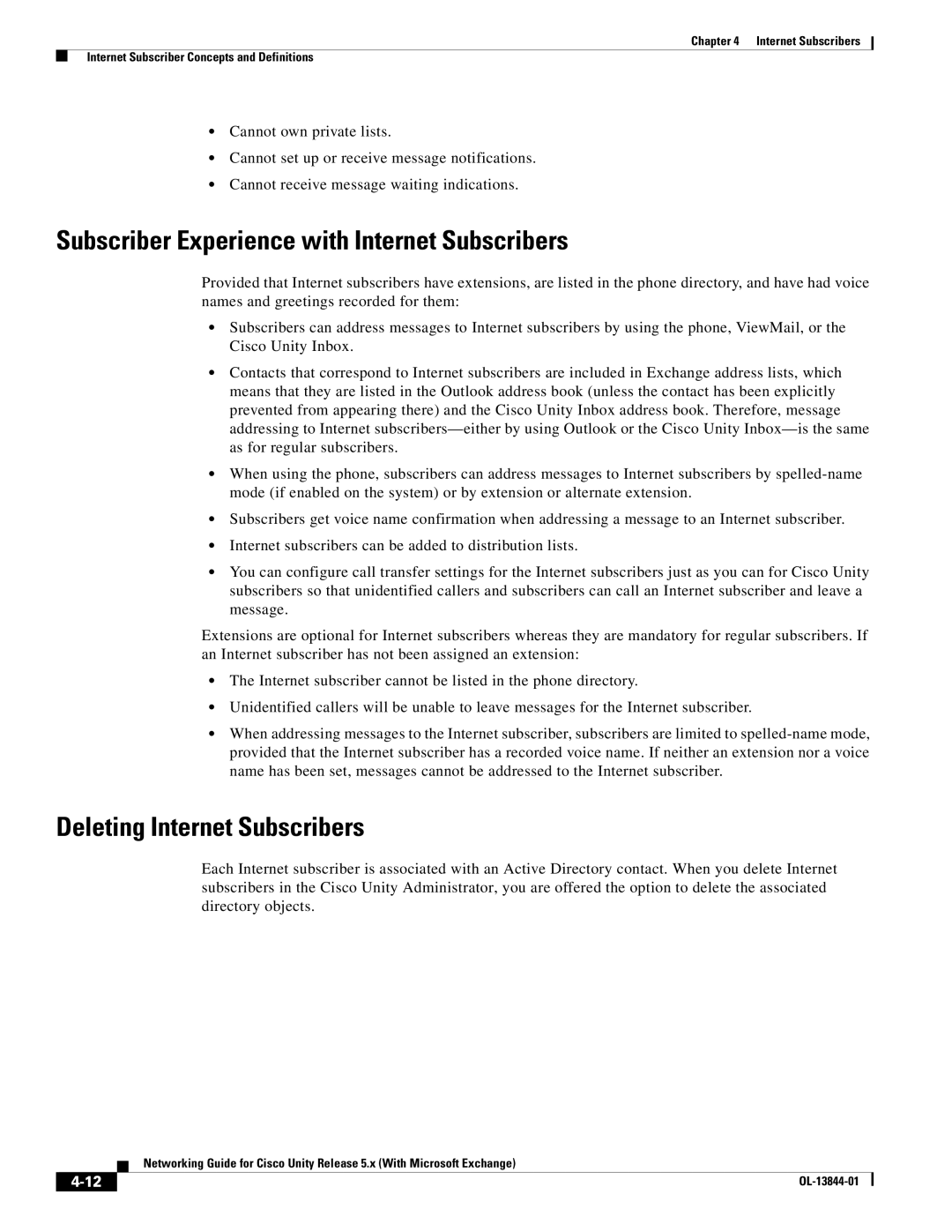
Chapter 4 Internet Subscribers
Internet Subscriber Concepts and Definitions
•Cannot own private lists.
•Cannot set up or receive message notifications.
•Cannot receive message waiting indications.
Subscriber Experience with Internet Subscribers
Provided that Internet subscribers have extensions, are listed in the phone directory, and have had voice names and greetings recorded for them:
•Subscribers can address messages to Internet subscribers by using the phone, ViewMail, or the Cisco Unity Inbox.
•Contacts that correspond to Internet subscribers are included in Exchange address lists, which means that they are listed in the Outlook address book (unless the contact has been explicitly prevented from appearing there) and the Cisco Unity Inbox address book. Therefore, message addressing to Internet
•When using the phone, subscribers can address messages to Internet subscribers by
•Subscribers get voice name confirmation when addressing a message to an Internet subscriber.
•Internet subscribers can be added to distribution lists.
•You can configure call transfer settings for the Internet subscribers just as you can for Cisco Unity subscribers so that unidentified callers and subscribers can call an Internet subscriber and leave a message.
Extensions are optional for Internet subscribers whereas they are mandatory for regular subscribers. If an Internet subscriber has not been assigned an extension:
•The Internet subscriber cannot be listed in the phone directory.
•Unidentified callers will be unable to leave messages for the Internet subscriber.
•When addressing messages to the Internet subscriber, subscribers are limited to
Deleting Internet Subscribers
Each Internet subscriber is associated with an Active Directory contact. When you delete Internet subscribers in the Cisco Unity Administrator, you are offered the option to delete the associated directory objects.
| Networking Guide for Cisco Unity Release 5.x (With Microsoft Exchange) |
|
